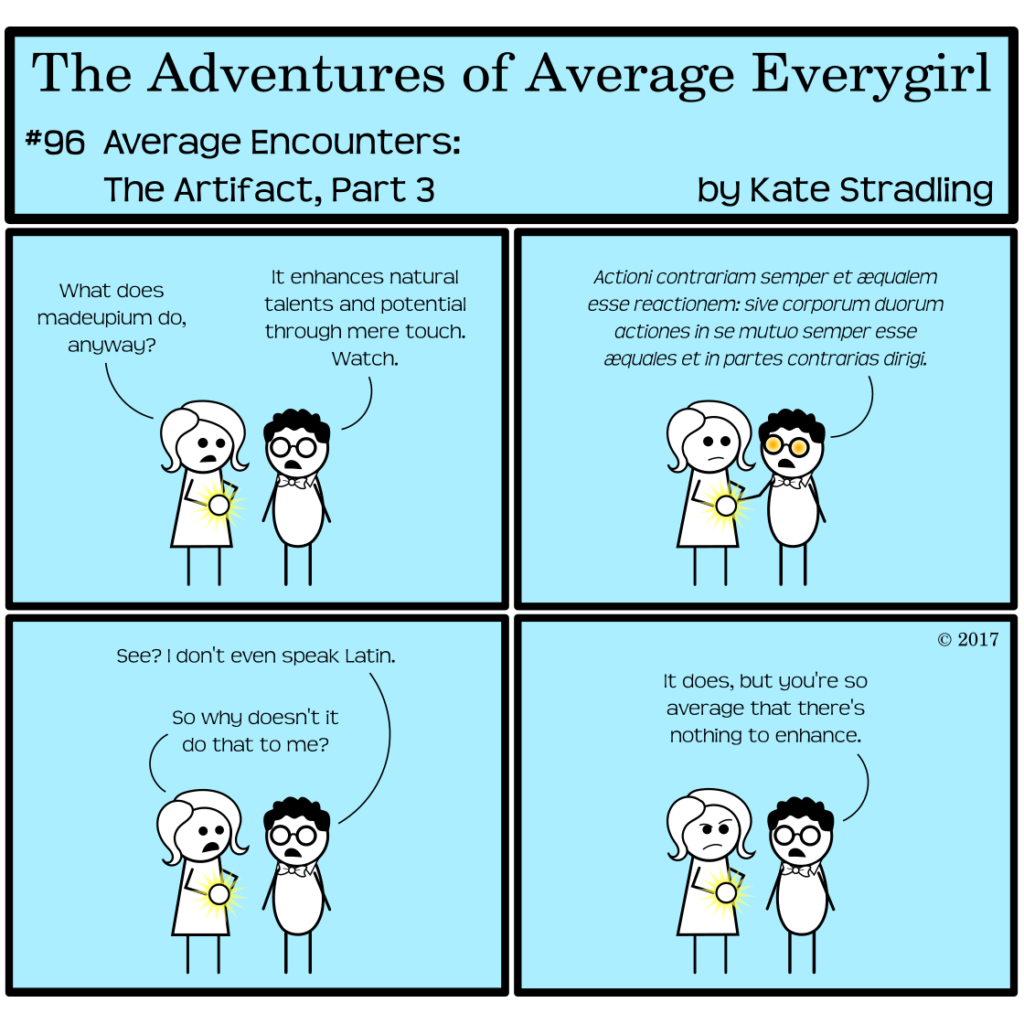
When it comes to dangerous artifacts in a fictional setting, every writer faces at least two dilemmas:
- Why does everyone want this thing?
- Why is the main character the most appropriate to deal with it?
(I mean, you can ignore those two issues, but then you end up with a confirmed MacGuffin and a contrived plot. If that’s your cup o’ tea, more power to you.)
Issue #1: The Cause for Desire
The obsession with dangerous artifacts usually boils down to one word: power. “Dangerous artifacts” are dangerous because they grant or disrupt power and thereby throw off the balance of the universe. Consider:
- The One Ring (LOTR)
- The Elder Wand (HP)
- The Amulet of Samarkand (Stroud’s Bartimaeus Trilogy)
- The Orb of Aldur (Eddings’s Belgariad)
- The Godstone (Carson’s Fire and Thorns)
- Every dragon egg and enchanted sword across the fantasy spectrum
Each is a singular item that amplifies its user into a new class of abilities. Hence, the bad guys want the power, and the good guys (generally) want to keep it hidden. Or, either side might want to destroy it, depending on how its powers affect them.
And then there’s that one poor sap who stumbles across it unwittingly.
Issue #2: “Why Me?”
When a dangerous artifact lies at the center of a crisis, the story inevitably needs someone to deal with it.
Enter the Chosen One.
I’ve encountered a lot of critique lately about how books—and fantasy epics in particular—keep focusing on this motif of a Chosen One. The snarkier critics point to it almost with a sneer.
“Oh, look! Another story about a Chosen One! How original!”
While I agree that the motif can be too heavy-handed, stories by their very nature must center on unique individuals. Protagonists have to measure up to their conflicts, or else they’d get eliminated in the first three chapters. And then what was the point?
(Or you can take away the conflict, but then we’re left wandering the hills with Wordsworth. Again, what’s the point?)
In a sense, every protagonist is a Chosen One, because the author chooses to tell their story.
So, answer #1 to the question of “Why this protagonist?” is simply “Because it had to be someone.”
A pretty crummy answer by itself. Which is why there must be something more.
That Certain Je Ne Sais Quoi
Some characters merit their Chosen One status because they are literally chosen by God, prophecy, or the villain himself to rise up against the conflict:
- Princess Lucero-Elisa de Riqueza (chosen by God)
- Taran of Caer Dallben (chosen by prophecy)
- Harry Potter (chosen by prophecy and/or Voldemort)
Others merit it because of their heritage, lineage, or inborn talent:
- Frodo Baggins (mild-mannered hobbit = less susceptible to the Ring)
- Arthur Pendragon (son of Uther Pendragon and Igraine, daughter of a Welsh king)
- Nathanial/John Mandrake (natural-born magician with all the advantages therein)
In some rare cases, the protagonist appears to assume their role by happenstance, but beware that condition. “Chance” almost always ties into fate.
Accept it. Embrace it. Enjoy it.
A Final Observation on Dangerous Artifacts
While jewelry and weapons receive favored status, the truly innovative artifacts fall outside these categories. For example, Lloyd Alexander’s black cauldron grants its owner the means to an immortal army and his oracular pig allows glimpses into the future. They’re both brilliant artifacts, because no one expects anything so grand from cookware and livestock.
(And yes, h/t to the Mabinogion for that innovation. Source material matters, my friends.)